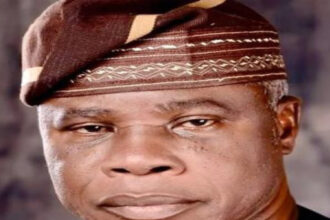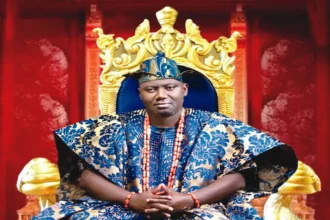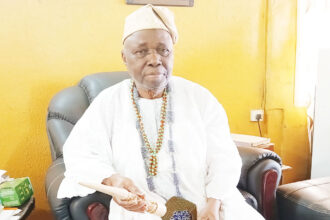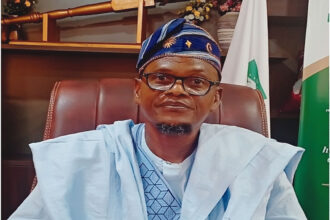Professor Remi Aiyede, Head, Department of Political Science, University of Ibadan (UI), speaks with IMOLEAYO OYEDEYI on why coup detat has prevailed in the West Africa sub-regions and what remains the best approach for ECOWAS in restoring constitutional order in Niger without bloodshed.
Looking at the Niger crisis, why do you think successive ECOWAS military interventions have not discouraged coup d’état in West Africa?
First and foremost, it is not correct that ECOWAS has been intervening in coups in West Africa by military means because most of the interventions have not been achieved by force. Whether it is in Sao Tome or in any other part, there were a lot of negotiations that were carried out. Even former Nigerian president, Olusegun Obasanjo, also successfully negotiated the exit of the military in one of the countries in the region. Even talking about the Gambia case, the ECOWAS had actually mobilised to go there from Senegal, but before the troops could shoot a bullet, the boy has been able to convince [Yahya] Jammeh to leave power. So it has not always been through the use of force. But talking about why coups will not be deterred, the question is why is ECOWAS intervening in the Niger crisis when it had not done so in other countries currently under military rule in the region?
Secondly, one of the reasons the ECOWAS body cannot succeed in preventing coups is that many of the leaders themselves are not democrats, both in their conduct and policies. In fact, the elections that brought most of them into power have been greatly questionable. The elections have been riddled with malpractices and manipulation of results. A typical case in point is that of the chairman of ECOWAS himself, whose election has been described by observers as one of the very dubiously flawed elections in recent times in Nigeria, such that people have not just been in court, but the president has continued to insist that the election was free and fair against the reports of a whole organ of international observers.
More so, in the way the ECOWAS leaders have been governing their countries, they have not been portraying democratic ideals. For instance, there are some of them who have removed the term limits in their country’s political system by manipulating the constitutional amendment processes to make themselves life president. But ECOWAS has not opposed these people or condemned their actions. Rather, the regional body has publicly supported them. And then again, even when ECOWAS members are elected and the international observers are saying their elections are flawed, the ECOWAS body often gives the election a clean bill of health. The regional body has also with open arms welcomed leaders who have had all kinds of democratic contradictions in their countries. And then, in many cases, there have been spirited abuses of human rights by the so-called ECOWAS leaders. So how can they come now and claim that they are champions of democracy? Then, in many places, the ECOWAS body endorsed military take-over. For instance, look at the situation in Chad. Did they complain or speak against how the military leader was imposed on the country? Did they even conduct any inquiry? Yet, they have worked with the military leader.
What are the other factors?
When you even look at places where military interventions have taken place, they have done it with the help of the United Nations and the African Union as well as some foreign governments. The outcome of such interventions, apart from the Cote D’Ivoire case which was very clear that Gbagbo was refusing to leave and wanted to use force to keep himself in power, has not been good. We all saw the outcome of the military intervention in Libya. It brought about complete anarchy and crisis. As such, nobody is looking forward to any kind of military intervention again, because the consequences are often very dangerous, especially when you want to intervene with a grand swell of opposition. The chances that you are going to succeed is very slim. Already, Burkina Faso and Mali have lined up behind the coupists in Niger. And as it stands, some of the African countries are not likely to support military action. So what kind of intervention is that? So these are the fundamental reasons it has become hard to suppress coups in the region.
Most importantly, everywhere you look in the ECOWAS countries, it is filled with bad governance. Apart from the varying abuses of human rights and the shrinking of the civic space, economic mismanagement is very rife in the region as things are very worse. Inflation is almost cutting down the necks of many countries. People’s lives are not even getting better, so why will they think of even supporting democracy? It has not yielded the expected dividends but has increased the suffering of the people. In Nigeria, the so-called giant of Africa, you talk of renewed hope. Are the hopes of Nigerians renewed now? So on what basis will you say, let us go and be fighting in Niger when we are hungry here?
If we have the money to fight, why can’t we deploy it in resolving our own contradictions rather than going on a misadventure for ECOWAS? we must institute good governance and demonstrate that democracy will put food on the table, before we can start saying we want to defend it. In fact, that is what I feel is the best way to defend democracy. It is not by going to Niger. The fact is if we are doing well in Nigeria, being the African giant, even the Nigeriens will say, look at democracy in Nigeria, it is that kind of democracy we want. So the real good work against military rule is good governance, effective management of the economy and improvement of the quality of lives of the citizens, which we normally call the dividends of democracy. Let the ECOWAS heads of governments deliver these and let’s see whether anybody will jubilate again if the military takes over in any country. Those are the things they need to do to ensure that the military does not come back to hunt down power in the region. It is not by supporting illegal constitutional change of the term limits on governance.








